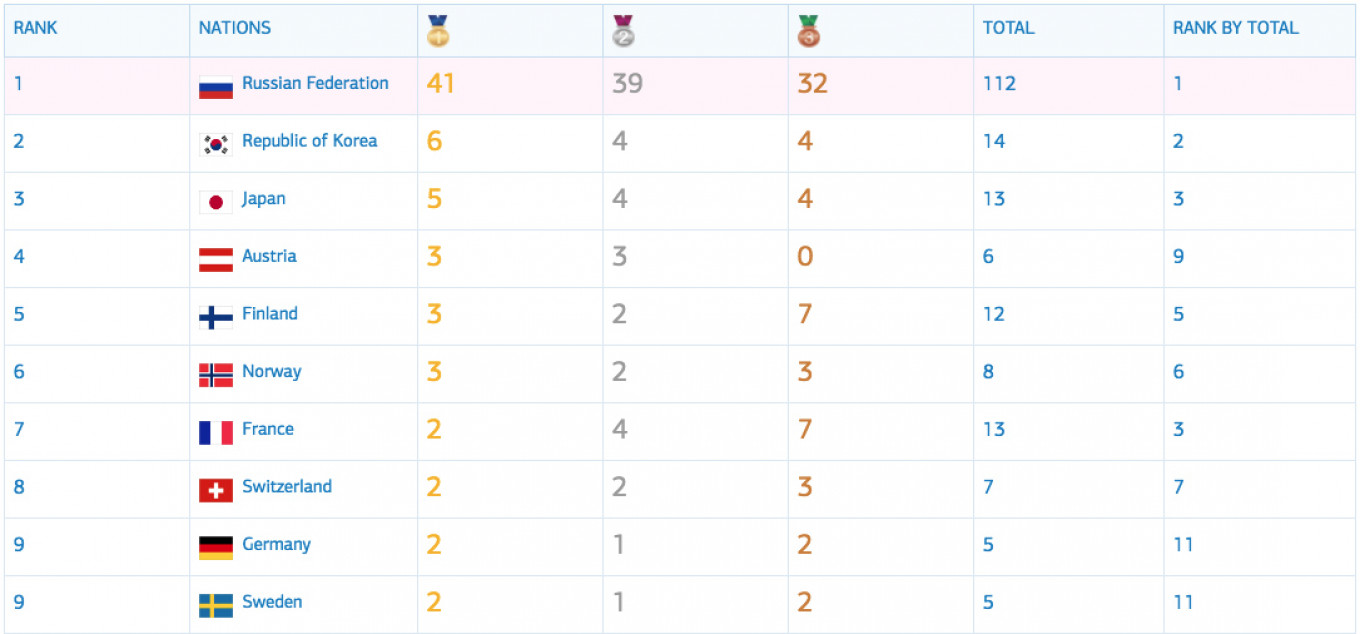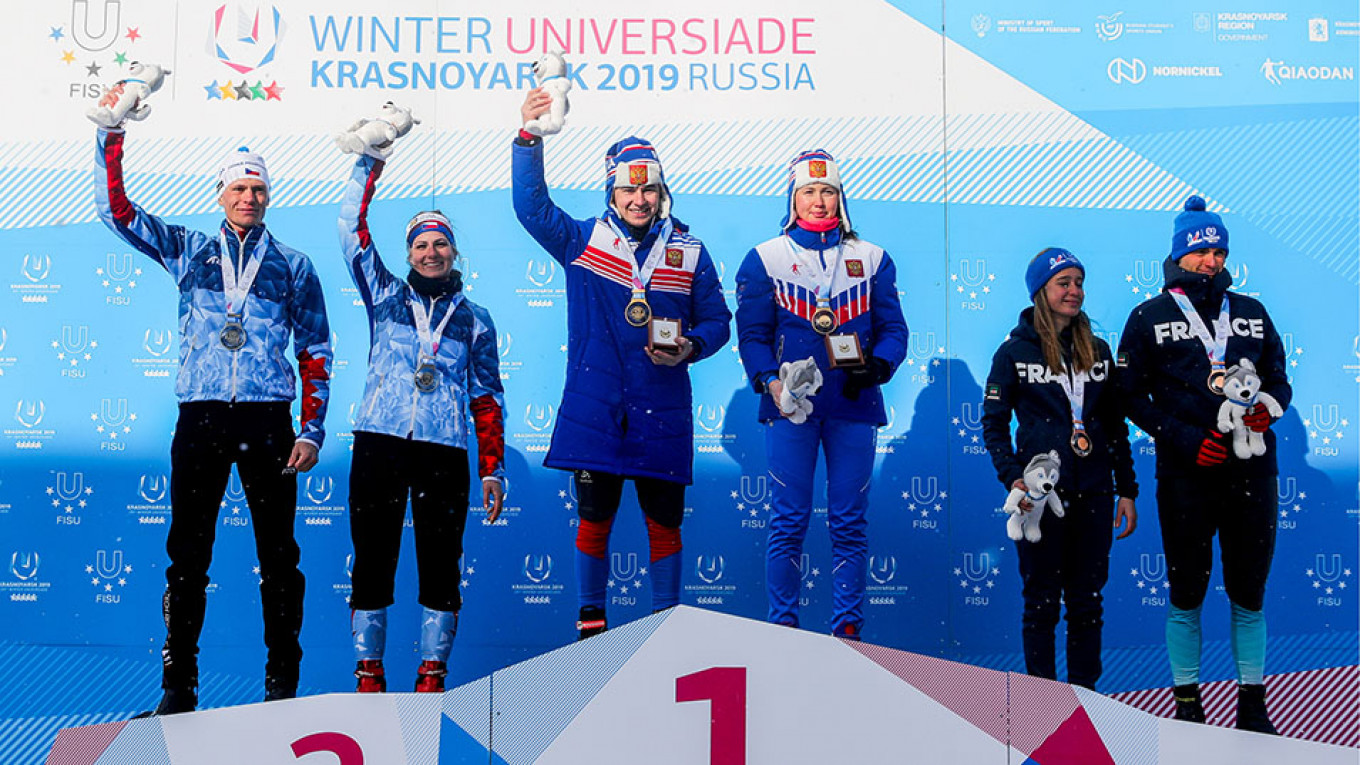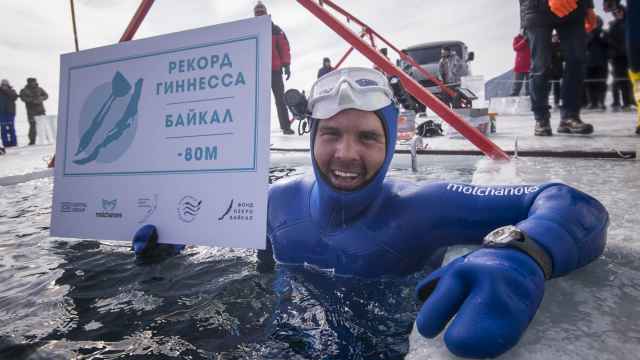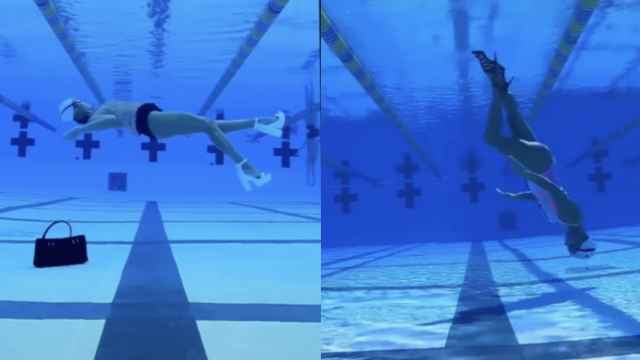The Russian team secured an overwhelming victory in the overall medals standings at the 2019 Winter Universiade, which ended on Tuesday in the Siberian city of Krasnoyarsk.
But what's the secret behind Russia's sweeping success at the biennale international multi-sport event, organized for university athletes? Quite simply, Russian professional athletes were competing against amateur students from around the world.
Russia's state-driven policy to bend internationally accepted sports rules stems from the close relationship sports and politics have in the country. As the controversial Sochi Olympics demonstrated, participation alone is never enough. Especially at competitions held at home, Russia longs for a guaranteed victory, preferably a resounding one.
In Krasnoyarsk, Russia won more than 110 medals, over 40 of them gold. South Korea came in a distant second place with six golds. Russia's total medal count was nearly equivalent to that of all other participating countries combined.
This is the "resounding victory," the "triumph of the Russian national team," that the domestic media eagerly used to describe the results.
Russia achieved an even more impressive result at another home Universiade, in the 2013 Summer Universiade in Kazan. Back then, Russian athletes won 155 gold medals at the time, far surpassing second-place China, which collected only 26.

Over the past decade, such achievements in student sports, for which attendance at a higher education institution is a key requirement, have become customary for our country.
Russia usually places either first or second, with the host country being occasionally allowed to slip ahead, but without a dramatic difference in the medals count.
How is this possible? A hint is in the words of Canadian hockey coach Kevin Hamlin, whose Universiade team recently lost to Russia in the semi-finals with a score of 5-1.
"We just played a hockey team that cumulative have played over 1,000 KHL games," Hamlin told the press, referring to Russia's Kontinental Hockey League.
"That's a professional hockey team we just played, and our student-athletes were extraordinary tonight," Hamlin said in comments carried by Canadian collegiate news outlet U Sports.
I commend your high appreciation of your team, Mr. Hamlin, but obviously, the Russian team consisted of players of an entirely different level. After all, they only conceded one goal.
The same is true in other sports. Among Russian medalists, there are members of the full-fledged national team, national champions, and so on. The current arrangement can hardly be called a competition of equals, with a victory that would evoke a true sense of pride.
Indeed, this televised spectacle of Russian triumphs proved not very popular this time around. Only the Match TV sports channel was willing to broadcast the Russian hockey team's final game, as well as the Universiade's closing ceremony, for the domestic audience.
It seems that even Russian audiences weren’t interested in this year's farcical competition.
A version of this article was originally published at the Vedomosti business daily
A Message from The Moscow Times:
Dear readers,
We are facing unprecedented challenges. Russia's Prosecutor General's Office has designated The Moscow Times as an "undesirable" organization, criminalizing our work and putting our staff at risk of prosecution. This follows our earlier unjust labeling as a "foreign agent."
These actions are direct attempts to silence independent journalism in Russia. The authorities claim our work "discredits the decisions of the Russian leadership." We see things differently: we strive to provide accurate, unbiased reporting on Russia.
We, the journalists of The Moscow Times, refuse to be silenced. But to continue our work, we need your help.
Your support, no matter how small, makes a world of difference. If you can, please support us monthly starting from just $2. It's quick to set up, and every contribution makes a significant impact.
By supporting The Moscow Times, you're defending open, independent journalism in the face of repression. Thank you for standing with us.
Remind me later.







